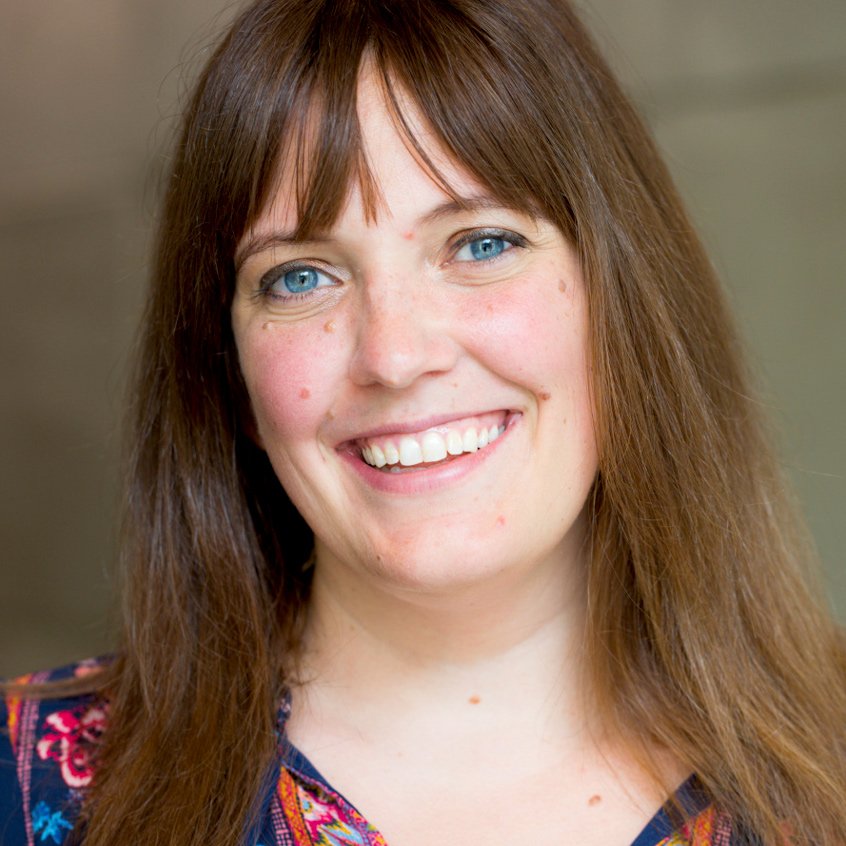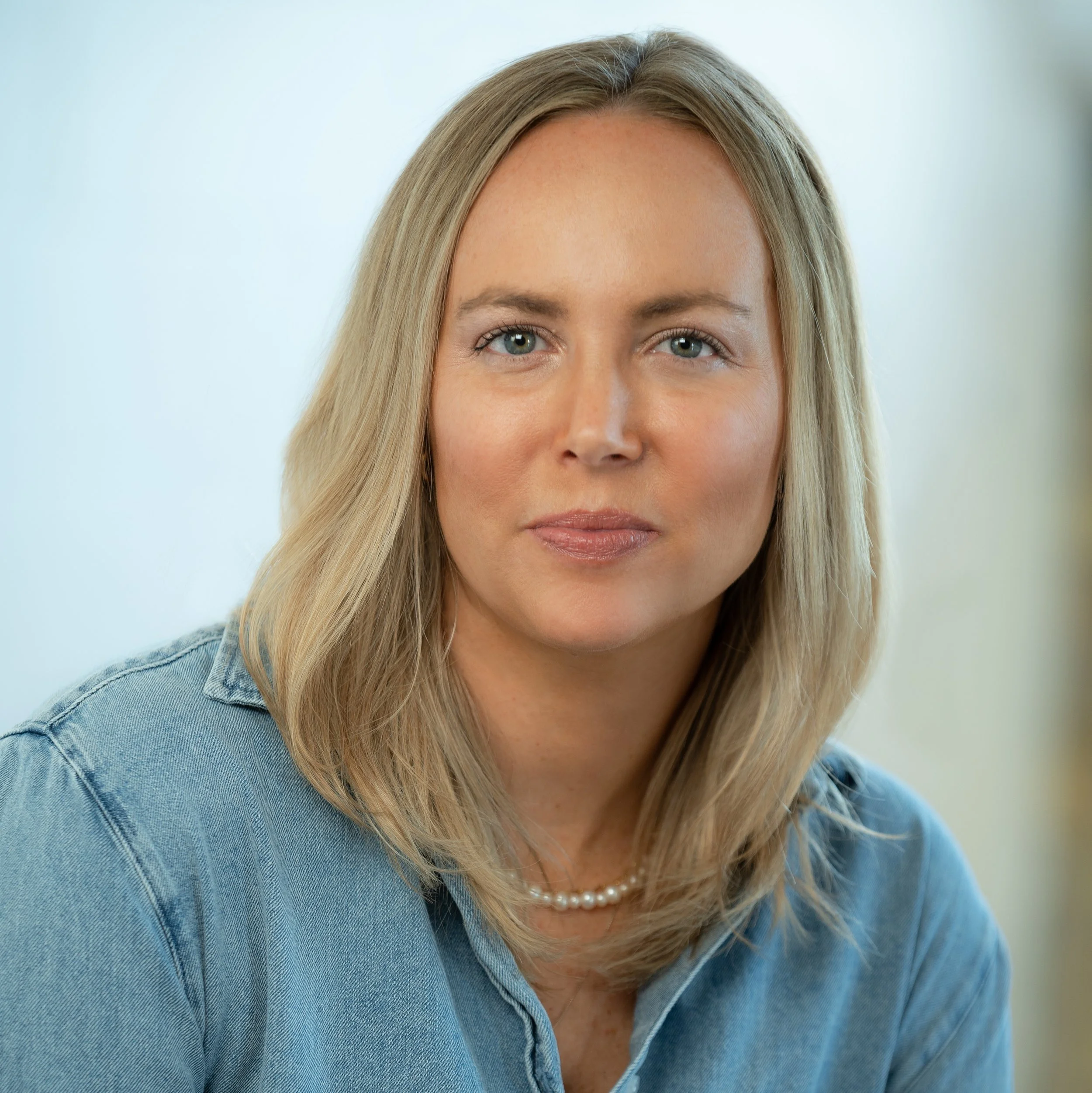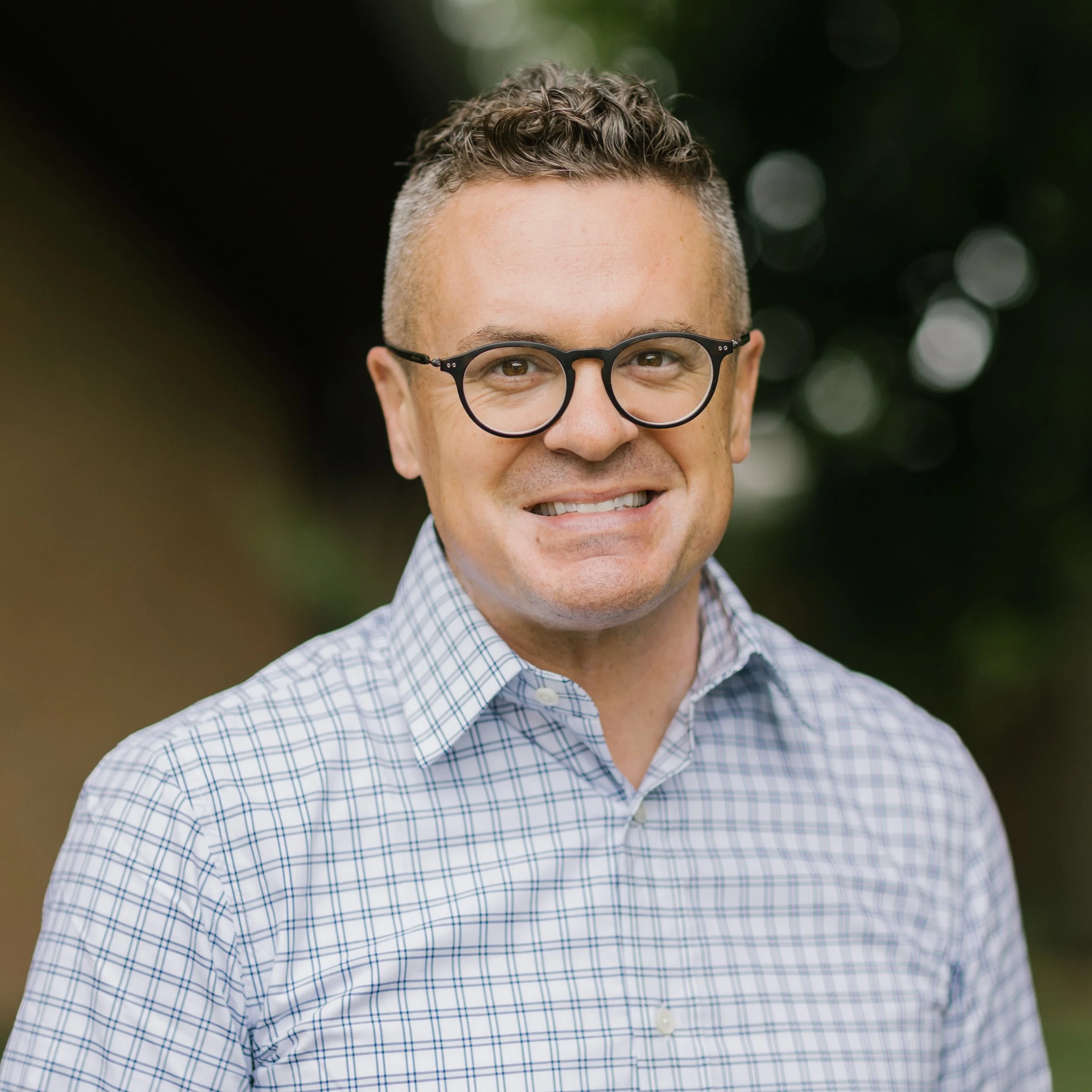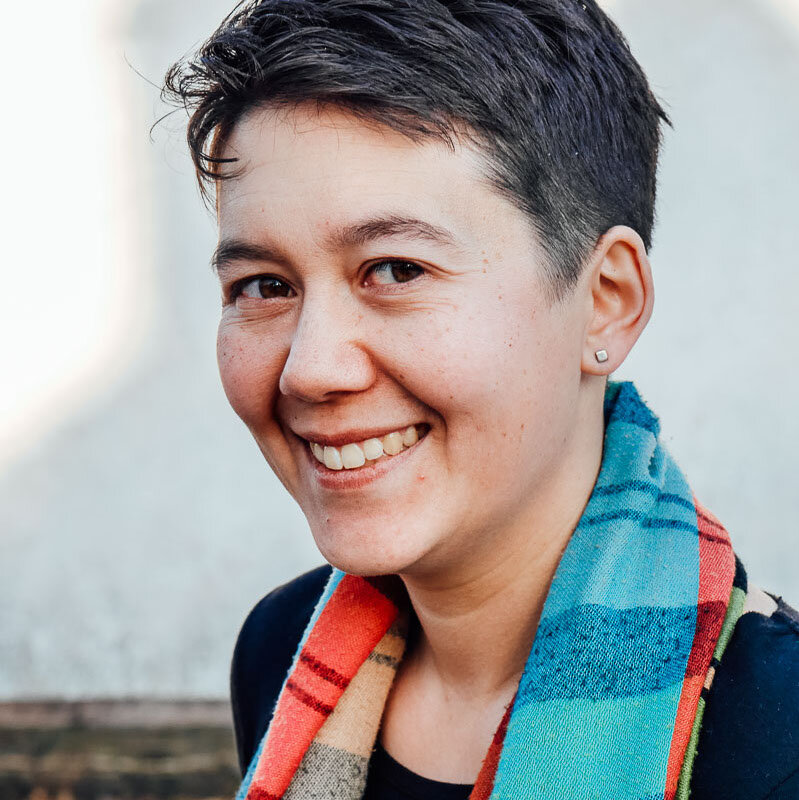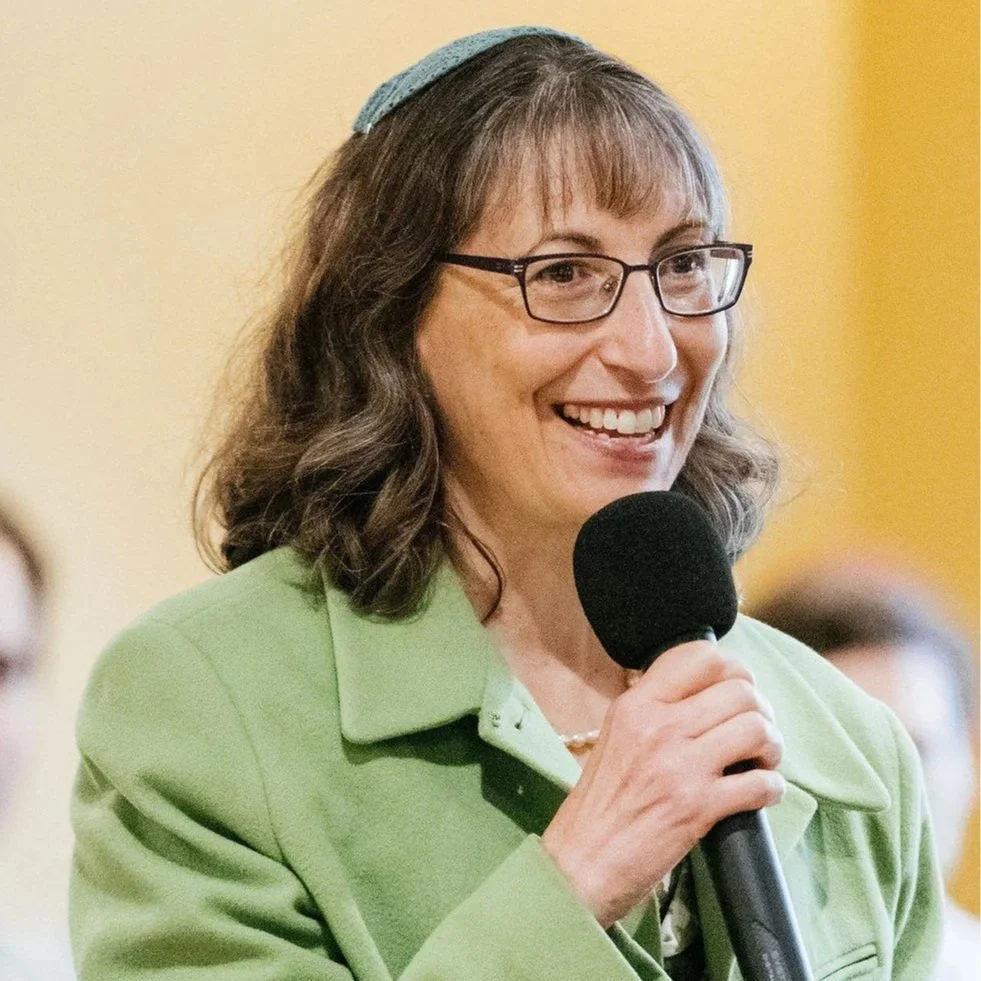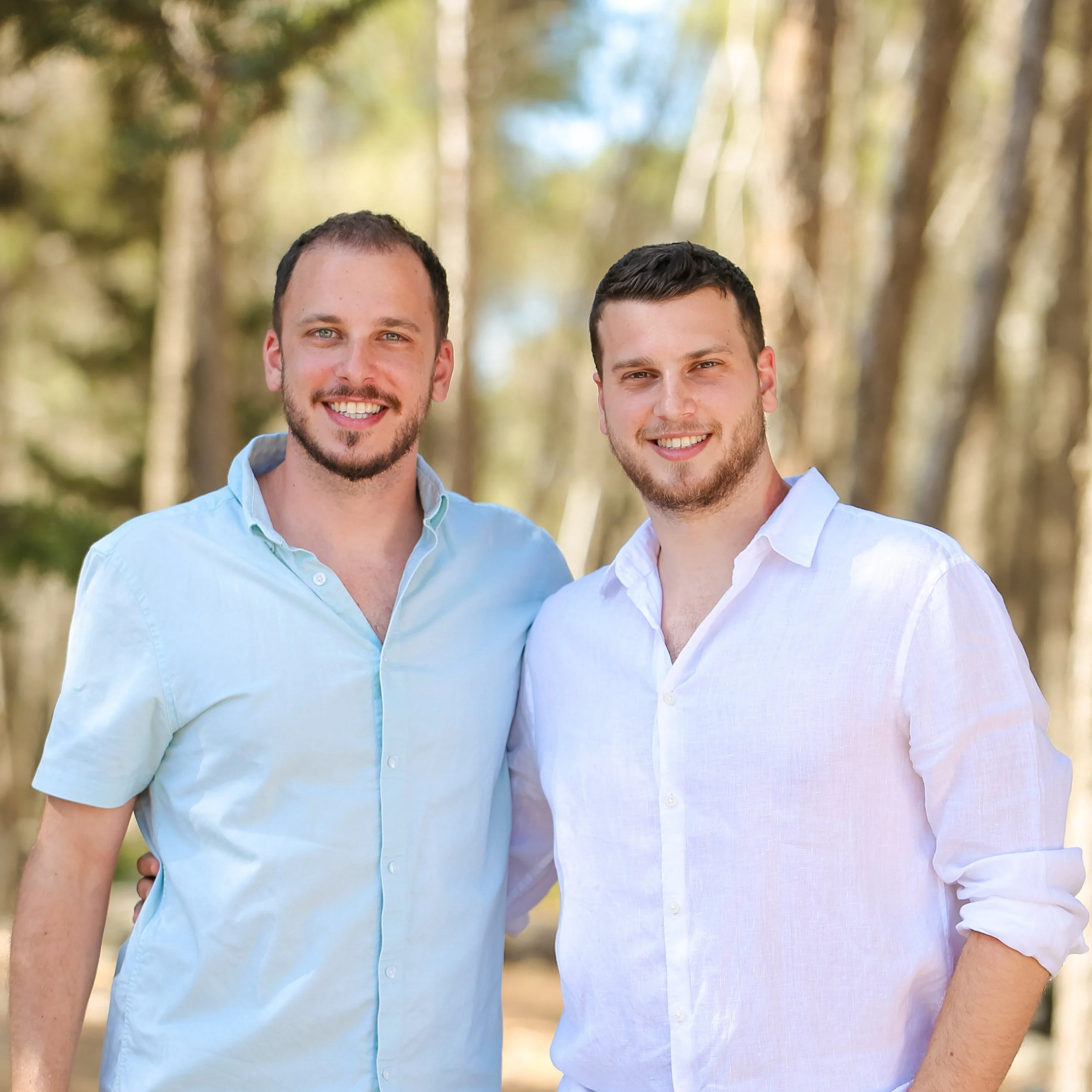12 days of virtual conversations, workshops, and collective discernment
Online | Open to all
In a time when authoritarianism and religious nationalism are gaining ground globally, what does it mean to follow Jesus — not as a cultural identity or national allegiance, but as a path of peace, solidarity, resistance, and hope?
This year, during the 12 Days of Peace - between the International Day of Peace and the International Day of Nonviolence - we’re bringing together diverse voices across geographies, spiritual traditions, and disciplines for a series of online events exploring how Christians and other justice-seekers can respond with courage, creativity, and compassion.
We’ll explore theologies, spiritual practices, and grassroots strategies that can help us resist forces of domination and oppression while building communities rooted in justice, healing, and solidarity.
Scroll down to see all the events, and sign up to join as many as you like.
*You can also support this initiative and help us continue to make conversations like this freely available by making a donation at https://secure.qgiv.com/event/twelvedaysofpeace/
September 22
Faithful Resistance: Following Jesus in an Age of Empire - Omar Haramy, Thandi Gamedze, David Gushee
September 23
Cultivating an Antiracist Formation: A Values-Based Approach - Anna Stamborski
Give Your Spirit a Break - Michelle West-James
September 24
Faith, Peace, and Power Across Contexts: Uganda, Palestine, and Korea - Philip Kakungulu, Saleem Anfous, Jennie Telfer
Christian Nationalism and the Soul of the Church: Resisting Toxic Theology and Healing the Flock - Angela Denker, Drew Strait
September 25
The Gospel vs. Empire: Christian Zionism, Christian Nationalism, and Resisting the Authoritarian Temptation - Kevin Brown, Ruth Padilla De Borst
September 26
Sustaining Ourselves, Sustaining Each Other - Mirela Popaja-Hadžić
September 29
Strengthening Community Connections: How to Run an Offers and Needs Market in Your Neighborhood - Liz Digitale Anderson
Organizing Transformative Interfaith Events: Build Bridges and Partnerships Across Religious Differences - Martin Brooks
September 30
Allies Navigating Hate Speech: Ideas and Practice for Showing Up - Pam Winthrop Lauer
October 1
Bending the Arc: An Introduction to Kingian Nonviolence - Steve Schallert
October 2
Palestinian Theology Amid Gaza - John & Samuel Munayer, Michael McDougle
Embrace Your Inner Ostrich: Theological Reflections on Apathy, Guilt, and Inspiration in Social Justice Activism - Malinda Berry

The Events
Faithful Resistance: Following Jesus in an Age of Empire
SEPTEMBER 22 | 12:00-1:30PM EDT
Across the globe, we are witnessing a concerning rise in authoritarianism and religious nationalism — movements that often co-opt faith to justify domination, exclusion, and violence. As followers of Jesus and peacemakers, we are called not only to resist these distortions but also to live out a more faithful, liberating, and life-giving way in a hurting and divided world.
This opening panel sets the stage for our Faith, Peace, and Power virtual event series. Our panelists will weave together various global perspectives about the theological and ethical dimensions of authoritarianism and Christian nationalism, offering diverse, grounded perspectives on what it means to follow Jesus faithfully in such times. These speakers will challenge us to see the spiritual, political, and cultural systems we are entangled in—and invite us to imagine resistance rooted in justice, liberation, and deep spiritual formation.
-
Omar Haramy is a Palestinian Christian and the director of Sabeel Ecumenical Liberation Theology Center in Jerusalem. Rooted in the daily realities of occupation and injustice, Sabeel amplifies the voices of Palestinian Christians while cultivating global solidarity for justice and peace. Through teaching, organizing, and international advocacy, Sabeel works to articulate liberating theologies that speak from the heart of suffering while calling the global church to faithful witness. Sabeel seeks to embody a theology of resilience and resistance—grounded in Jesus’ vision of an inclusive liberation for the oppressed and reconciliation and peace rooted in justice.
-
Dr. Thandi Gamedze is a South African educator, theologian, cultural worker, and poet based at the University of the Western Cape’s Desmond Tutu Centre for Religion and Social Justice as a Senior Researcher. Her doctoral research was transdisciplinary, bringing together the worlds of education and theology to better understand the churches’ role in upholding and challenging dominant power relations relating to race, gender, and class. Gamedze’s interests include black theology, liberation theology, social justice, education, and the arts, particularly poetry. She has broad experience working across multiple sites, including churches, universities, high schools, and community organizations.
-
Dr. David P. Gushee is one of the leading Christian ethicists of our time, known for his courageous engagement with the moral crises facing church and society. He has written or edited over 30 books, including Defending Democracy from Its Christian Enemies (2023), a call to resist authoritarianism and reclaim Christian witness for justice and human dignity. A past president of both the American Academy of Religion and the Society of Christian Ethics, David has been a prophetic voice in confronting the ways Christian faith has been co-opted by nationalism and exclusionary politics. Today, his work continues to focus on the intersections of Christian ethics, public life, and faithful resistance to authoritarianism around the globe.

Cultivating an Antiracist Formation: A Values-Based Approach
SEPTEMBER 23 | 3:30-5:00PM EDT
In today’s charged climate, we may seek to align our actions with antiracist values but may experience stress or uncertainty about how to do so effectively. At times, we may lean on familiar habits that don’t always align with our deepest commitments to racial justice and equity, prompting the question: how can we cultivate greater awareness and make choices that truly support these values? In this session, participants will explore ways to intentionally nurture antiracist values in our daily lives, fostering deep internal transformation that supports meaningful action, and they will leave with a personal "Antiracist Rule of Life" to integrate these values into their life and work.
-
Anna Stamborski, M.Div., is a national organizer and trainer with Crossroads Antiracism Organizing and Training, known for her expertise in creating interactive and growth-oriented spaces. She is also a qualitative researcher, JEDI consultant, and former bilingual public educator. Anna's approach is deeply influenced by her background in Restorative Justice, mediation, and her role as an Intercultural Development Inventory (IDI) Qualified Administrator, emphasizing high accountability, joy, and growth.
Give Your Spirit a Break
SEPTEMBER 23 | 6:00-7:00PM EDT
This conversation-based workshop will be a brief exploration on the history of Sabbath and how the spiritual practice has turned into a Medical Necessity. Be prepared to hear about how we have rested throughout history and how practicing Sabbath benefits peace-building efforts. We will work on establishing three ways to establish Sabbath in our everyday lives.
-
Michelle originally hails from Virginia, where she considers the entire state her home. She has traveled extensively throughout her adult life with a passion for culture and people's stories. She has helped organizations of all sizes build sustainable outreach and fundraising initiatives, from world-class universities to local grassroots initiatives. Michelle loves the power of a community's story and watching it bring people together to revolutionize the future for the benefit of all people.

Faith, Peace, and Power Across Contexts: Uganda, Palestine, and Korea
SEPTEMBER 24 | 4:00-5:00AM EDT
In a time when authoritarianism and religious nationalism are reshaping societies around the world, Christians often find themselves caught between complicity and resistance. What does it mean to follow Jesus when faith is used to justify domination, nationalism, or exclusion? And how might Christians embody a different way—the way of peace, solidarity, and hope?
In this panel, we’ll hear from three Peace Catalyst team members rooted in very different contexts:
Philip Kakungulu (Uganda) works with pastors, refugees, and faith leaders across the Great Lakes region, equipping them to resist divisive theologies and embody God’s reconciling mission.
Saleem Anfous (Palestine) brings his experience as a Christian in Bethlehem navigating the daily realities of military occupation, church divisions, and global Christian silence.
Jennie Telfer (South Korea) mobilizes people for practical solidarity and peace advocacy in a context marked by unresolved war and deep polarization.
Together, they will reflect on how Christians in their contexts are interacting with, perpetuating, and resisting “power-over” theologies and politics, and what following Jesus’ way of peace looks like in practice. Expect a candid conversation with concrete stories—both the harmful realities and the hopeful practices—that illuminate what it means to resist domination and build communities rooted in justice, healing, and solidarity.
-
Philip lives in Kampala, Uganda with his family. He is a pastor and seminary graduate with a Master of Divinity, having majored in Faith-Based Training in Conflict Transformation for Trainers. As the team leader and founder of Crossing Lines Africa and a founding member of the African Peace Warriors Network in 2013 (part of Global Peace Warriors), Philip works as a peacebuilding mobilizer, promoting peace-oriented theologies and facilitating conflict transformation training around the Great Lakes Region of Africa and beyond. In addition to his peacebuilding and conflict transformation work, he has worked extensively with faith leaders in refugee settlements and internally displaced people settlements in Uganda, South Sudan, Kenya, Ethiopia, D.R.Congo, Tanzania, Rwanda, and Burundi because he sees all work to heal individuals and groups as part of God’s reconciling mission.
-
Saleem Anfous is a tour guide in Bethlehem and the West Bank, a Project Manager for the Muslim/Christian Young Adults program at Musalaha, and serves as the producer of the Across the Divide podcast, which explores the intersection of Christian faith and social justice in Palestine-Israel and what this intersection means for the church in the West. Saleem originates from Aboud, the heart of Palestine’s finest olive oil, and has called Bethlehem home for over 25 years. His deep connection to both his Palestinian and Christian identities fuels his commitment to breaking down internal walls and managing the external challenges of living under the Israeli military occupation.
-
Born in the USA but raised in Europe and Africa, Jennie’s professional career has taken her around the world providing social services and advocating for populations impacted by trauma, injustice, and war. Her mission is to speak peace and joy into systems and situations of conflict to see them transformed. In solidarity with Koreans and Korean organizations, she currently provides peace education, advocates to end the Korean War, and mobilizes people for peacebuilding.
Christian Nationalism and the Soul of the Church: Resisting Toxic Theology and Healing the Flock
SEPTEMBER 24 | 1:30-2:45PM EDT
The soul of the church in America is in crisis. Throughout our congregations, harmful theologies have taken root that fuse religious and political identities together. Whether from the pulpit, the pews, or a politician's mouth, Christian nationalism—the belief that America should and must be a Christian country—is corrupting our churches and society. And because this nationalism is so entwined with other harmful forms of domination and social hierarchy-based ideologies—white supremacy, Christian Zionism, religious fundamentalism, authoritarianism, and more—our parishioners and communities are suffering as a result.
What can be done? How can we name and uproot Christian nationalism in our congregations, lead and disciple our churches to resist its influence, and begin to heal the bodies and souls of those it has harmed? Join authors, scholars, and experts on the study of Christian nationalism Rev. Angela Denker and Dr. Drew Strait to learn how churches and church members are being harmed, how the political and religious landscape has changed in the past year, and how pastors, leaders, and concerned Christians can respond with courage and care.
-
Rev. Angela Denker is an award-winning author, ELCA Lutheran pastor, and veteran journalist. Her first book, Red State Christians, was the 2019 Silver Foreword Indies award-winner for political and social sciences. Her second book, Disciples of White Jesus: The Radicalization of American Boyhood, came out on March, 25, 2025. She is a columnist for the Minnesota Star Tribune and has written for many publications, including Sports Illustrated, the Washington Post, and FORTUNE magazine, and has appeared on CNN, BBC, SkyNews, and NPR to share her research on politics and Christian Nationalism.
Pastor Angela lives with her husband, Ben, and two sons in Minneapolis, where she is a sought-after speaker on Christian Nationalism and its theological and cultural roots. She also serves Lake Nokomis Lutheran Church in Minneapolis as Pastor of Visitation and Public Theology.
You can read more of her work on Christian Nationalism, American culture, social issues, journalism, theology, and parenting on her Substack, I'm Listening.
-
Drew J. Strait is a dad, pastor, theologian, speaker, and professor. His writing and teaching focuses on political idolatry and peacemaking in early Christianity. Strait is a popular speaker on how faith communities can challenge Christian nationalism, violent extremism, and Christian supremacy with strategic nonviolence. He is the author of Strange Worship: Six Steps for Challenging Christian Nationalism.

The Gospel vs. Empire: Christian Zionism, Christian Nationalism, and Resisting the Authoritarian Temptation
SEPTEMBER 25 | 4:00-5:30PM EDT
Across the globe, authoritarian movements and religious nationalism are co-opting the name of Jesus to justify domination, exclusion, and violence. How should churches respond? In this session, pastor Rev. Kevin C. Brown and theologian Dr. Ruth Padilla de Borst examine how Christian Zionism and Christian nationalism overlap and diverge—and why both can tilt the church toward authoritarian logic. Drawing from Black church practice, Latin American integral mission, and lived experience in the Holy Land, our panel will reframe Scripture, name harms without fueling antisemitism or Islamophobia, and offer concrete next steps for congregations seeking a Jesus-shaped public witness. Co-hosted by Mercy Aiken and Andy Larsen of Peace Catalyst International.
-
Founding and lead pastor of The Perfecting Church (greater Philadelphia/South Jersey), Rev. Kevin C. Brown pastors a growing multi-ethnic congregation and founded Diverse But Not Divided, a network helping churches practice unity amid polarization. He has organized pastoral cohorts and church delegations engaging Israelis and Palestinians at the grassroots, fostering dialogue and reconciliation. His work extends through affiliated community development efforts in the region.
-
A Latin American evangelical theologian and missiologist, Ruth Padilla de Borst is the Richard C. Oudersluys Associate Professor of World Christianity at Western Theological Seminary. A leading voice in integral mission (evangelism + justice), she serves with CETI (a learning community across Latin America) and on the networking team of INFEMIT. She and her husband live in Costa Rica as part of the Casa Adobe intentional Christian community.
Sustaining Ourselves, Sustaining Each Other
SEPTEMBER 26 | 2:00-3:30PM EDT
In a time when “power-over” theologies and politics can leave us feeling worn down, disconnected, or hopeless, resilience becomes more than a personal strength. It becomes an act of resistance. This interactive workshop invites participants to learn and practice emotional first aid: simple, accessible tools for grounding, regulation, and self-awareness that can be used in daily life when stress or overwhelm sets in. Together, we will explore how oppression shows up in our bodies and emotions, and how cultivating resilience allows us to reclaim presence, agency, and dignity.
Because resilience is not only an individual practice but also a collective one, we will share stories and practices that strengthen community care and nurture “power-with” in place of “power-over.” Through embodied exercises and reflective dialogue, participants will leave with practical strategies to sustain themselves and one another in challenging times, carrying forward renewed energy for justice, care, and hope.
-
Born in Sarajevo in the 1980’s, Mirela had a front row seat to the breakup of Yugoslavia and the siege of Sarajevo. In her twenties, Mirela realized that the war impacted her more deeply than she had previously acknowledged, and this realization launched her into an introspective journey to grapple with and heal from her own trauma. It also catalyzed a process of theological and philosophical reflection about how to lament and embrace the hardships of life. Her own unaddressed grief and trauma came to the surface, and she came to understand the importance of grief as part of the process of healing and reconciliation.
As a Bosniak Protestant from a Muslim background, Mirela had prejudice toward Serbs and Croats despite the fact that she grew up with them. Dealing with her own grief helped her become open to and connect with people across ethnic divisions, so that she saw their grief, wounds, and stories as similar to her own.
This individual healing process clarified her sense of personal calling and mission: to work for individual and collective healing through mental health and peacebuilding work. She has over 10 years of experience working in both for-profit and non-profit sectors in project coordination, program management, training, facilitation, and translation. She is currently specializing in Gestalt Psychotherapy to become a trauma therapist to more effectively address the unengaged trauma manifesting in Bosnia and Herzegovina (BiH) as depression, anxiety, and addictions. She is also an affiliate trainer with Trauma Free World and holds a Bachelor’s degree in philosophy from the University of Sarajevo.

Strengthening Community Connections: How to Run an Offers and Needs Market in Your Neighborhood
SEPTEMBER 29 | 11:00AM-12:00PM EDT
Do you wish you knew more of your neighbors? Are you wondering how well your community will take care of each other in these uncertain times?
Come learn how to run an Offers and Needs Market!
Offers and Needs is a simple structure your community can use to meet new friends and see how they can help one another out within the community networks they already have.
Offers could be, "I love walking dogs!" or, "I have a snowblower I'm happy to lend" or, "I can teach you to cook tamales."
Needs could be, "I need help changing my car's oil" or, "I need a babysitter next week" or, "I'd love a new friend to go walking in the park with."
Practicing asking and receiving help is a great community muscle to exercise before crisis hits. If you have neighbors you want to meet or a congregation you want to strengthen connections in, an Offers and Needs market is solid proactive community building. You'll leave with a toolkit to run your own event!
-
Liz and Peter Digitale Anderson are based in Minneapolis, Minnesota, where they are equipping community peacemakers and collaborating with others for racial justice and healing. Drawing on their experiences in community organizing and development, interfaith peacebuilding, and contemplative spirituality, they are weaving together internal and external liberation alongside their neighbors, fellow activists, and people of faith.
Their collaborative projects include facilitating a healing and practice space for white men undoing white supremacist and patriarchal cultures; organizing white folk, especially people of faith, to work for racial justice alongside BIPOC partners; providing nonviolent protection for civilians and training others in safety skills; building community and inspiring activists through singing circles; and more. In addition, Peter leads trainings in conflict transformation, nonviolence, trauma awareness and healing, and community-based peacebuilding.
Organizing Transformative Interfaith Events: Build Bridges and Partnerships Across Religious Differences
SEPTEMBER 29 | 1:00-2:00PM EDT
Building relationships with people of different faiths can seem intimidating, but understanding, friendship, and collaboration across religious lines are essential if we want to create a community where we all can live well together.
Join expert interfaith peacebuilder and PCI President Emeritus Martin Brooks for a workshop exploring:
different goals for organizing interfaith gatherings;
proven strategies and suggested programming for getting the most connectivity possible during the event;
tips for inviting people people to partner and attend;
guidance for the "next steps" of following up to deepen relationships and building strong interfaith networks.
Audience questions and participation will be encouraged throughout the session.
-
Martin has been with Peace Catalyst since 2011 when he and his wife Susan returned from Turkish Cyprus. Drawing on the teachings and examples of Jesus, Martin has worked with local churches and mosques to create safe spaces to ask questions and build greater trust between Christians and Muslims. He has organized dialogue events, iftar meals and “Peace Feasts” with Palestinians, Syrians, Turks, Pakistanis, Somalis, Kurds, and Iranians. A gifted collaborator, he works with city officials, refugee agencies, local clergy and interfaith groups to seek the peace of the city and mutual thriving for all.
Martin served as Peace Catalyst President for four years, and as Peace Catalyst’s Director of Partnerships, he organized a cooperative effort between Peace Catalyst International, World Vision, World Relief, Sojourners, National Association of Evangelicals, Pathways Center for Mutual Respect at Yale University, Evangelicals for Social Action, Global Immersion Project, National Latino Evangelical Coalition and Evangelicals for Middle East Understanding. This partnership was called Evangelicals for Peace and brought together evangelical groups to help the churches understand foreign policy issues through the lens of the Prince of Peace.
Martin has a Masters of International Relations from Near East University. He has lived with his family in Portugal, Mozambique, Ghana, and Turkish Cyprus and overseen missions, relief, and development projects in Afghanistan, Bosnia, Mozambique, Morocco, South Sudan and Tanzania. Martin is married to Susan Brooks who uses her artistic skills as a visual peacemaker. They are based in Louisville, Kentucky with their three children and ten grandchildren nearby.

Allies Navigating Hate Speech: Ideas and Practice for Showing Up
SEPTEMBER 30 | 7:30-9:15PM EDT
We know that harm happens by way of both unconscious slights and outright harassment, whether about someone's weight, sexual orientation, color, religion, or something else.
When it comes to responding in tense situations like this, fear of doing it wrong, of judgment, and of being ineffective can keep us from doing anything at all. It takes practice to change life-long habits and to learn to respond quickly, with integrity and humanity.
In this workshop, we will use short, focused, guided role-plays to practice responding with humanity when we witness harm.
Join Pam Winthrop Lauer, Certified Trainer with the Center for Nonviolent Communication, to learn some principles of Nonviolent Communication (NVC) and experience putting them into practice in real-life situations.
-
Pam Winthrop Lauer facilitates NVC organizational trainings and workshops, provides NVC coaching to individuals and couples, and offers mediation services, Convergent Facilitation, and restorative circles for organizations and families. Pam is also a spiritual director and meets with individuals for soul tending and spiritual discernment sessions. Learn more at https://www.cnvc.org/trainers/pam-winthrop-lauer
Bending the Arc: An Introduction to Kingian Nonviolence
OCTOBER 1 | 3:00-4:30PM EDT
Martin Luther King famously said that “the arc of the moral universe is long, but it bends towards justice,” and yet even King understood that it bends because of the disciplined nonconformists who are willing to confront the violence of our world. Join us for a short introductory organising webinar as we explore King’s philosophy and praxis for social change and welcome those aching for peace to start organising for justice.
-
Steve Schallert is a peacebuilder, organiser, educator and practitioner of Kingian-Nonviolent Conflict Transformation living and practicing in Cape Town, South Africa. Mentored by the Catholic Worker Movement and Plowshares tradition, for the past two decades Steve has helped develop and facilitate dozens of conflict transformation schools and projects in diverse conflict and post-conflict contexts such as Afghanistan, Egypt, Pakistan, Lebanon, and South Africa. His current passions centre on supporting and developing young peace and justice practitioners who are engaged in healing the walls of hostility within their communities.
Locally, Steve serves as the Director of International Solidarity with Iziko Lamaqabane, a faith-based support centre for urban peace and justice practitioners throughout Africa. By working in relational solidarity with local practitioners, Iziko Lamaqabane serves those active at the site of struggle by facilitating spaces of retreat, exchange and collective learning grounded at the intersection of anabaptism, black liberation theology & critical consciousness.

Palestinian Theology Amid Gaza
OCTOBER 2 | 11:00AM-12:00PM EDT
Join Dougle, PCI's Peace Ambassador in Lithuania, for an interview with Palestinian Christian theologians John and Samuel Munayer. John and Samuel represent a young generation of Palestinian theologians and have co-edited a book, full of authors who also represent this younger generation, that wrestles with the current genocide taking place in Gaza. This interview will touch on the origins and development of Palestinian theology and how it addresses the Gaza genocide.
-
John Munayer is a Palestinian theologian from Jerusalem and holds degrees from King’s College London, the University of Edinburgh, and VU University Amsterdam. John is currently involved in interreligious activism and the founder and editor of the Journal of Palestinian Christianity at the Bethlehem Bible College. He is also a PhD candidate at the University of Edinburgh, researching the political theology of the Palestinian laity in relation to the Holy Fire ceremony.
Samuel Munayer is a Palestinian theologian from Jerusalem and holds degrees from Durham University and Exeter University. Samuel works as an advocacy and access officer for a humanitarian organisation that works in Gaza and the West Bank.
He recently co-authored with John the article entitled, “Decolonising Palestinian Liberation Theology: New Methods, Sources, and Voices.”
-
Michael McDougle is a lecturer in Conflict Studies at LCC International University in Klaipėda, Lithuania, and a volunteer with Peace Catalyst International (PCI). Originally from the United States, he has lived and worked in Russia, Ukraine, China, and Lithuania. He holds an MA in TESOL (Biola University) and an MA in Theology and Culture with a concentration in Peace Studies (St. Stephen's University). He is completing a PhD in Intercultural Studies at Columbia International University. His research interests lie at the intersection of theology, peace studies, and culture, particularly in the context of Palestine, and he serves on the Israel-Palestine working group with Peace Catalyst. Michael is also a certified Mediation Facilitator & Associate Trainer through Dialogue for Peaceful Change (DpC).
At LCC, Michael teaches Conflict Transformation and Civic Engagement, a required course for all students, as well as courses on peacemaking and justice in Palestine-Israel and on peacemaking and justice from a theological perspective.
Michael’s work at LCC and with Peace Catalyst is entirely support-based. Ongoing support for his university role goes through LCC, while one-time project support related to his Peace Catalyst work is received through PCI.
Embrace Your Inner Ostrich: Theological Reflections on Apathy, Guilt, and Inspiration in Social Justice Activism
OCTOBER 2 | 1:00-2:30PM EDT
No, ostriches don’t actually bury their heads to avoid conflict, but many of us have learned from this folklore and “bury our heads in the sand” when difficult stories of systemic and structural violence surface and require a reckoning. Join this conversation to engage a theological and ethical framework for understanding why working with and through complicity is so difficult. We will also identify spiritual practices that help us keep our heads up in times of upheaval.
-
Dr. Malinda Elizabeth Berry is both a theologian and a teacher: she’s passionate about the subject matter of her courses and believes that the content of a course should shape how it is taught. Her commitment to Anabaptism in the Mennonite tradition is evident in her approach to an array of topics, issues, and concerns of our day: Christian social responsibility, environmental stewardship—with an emphasis on human ecology, and renewing congregational life in its structural and spiritual dimensions. In addition to the research she does to support her teaching, Malinda continues to develop her contribution to peace theology: shalom political theology (SPT). She is currently working to outline a model for theological reflection based on SPT for application in congregational and organizational settings. She is also the director of the Faith Formation Collaborative.






